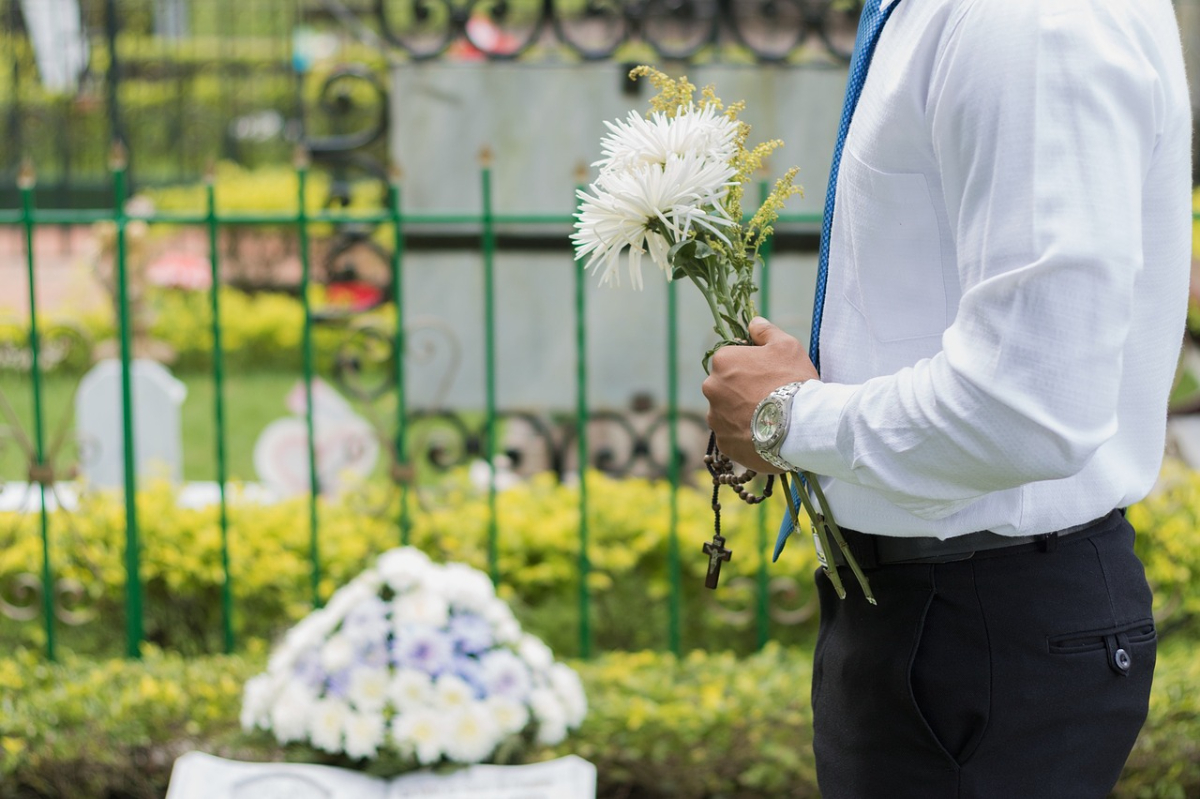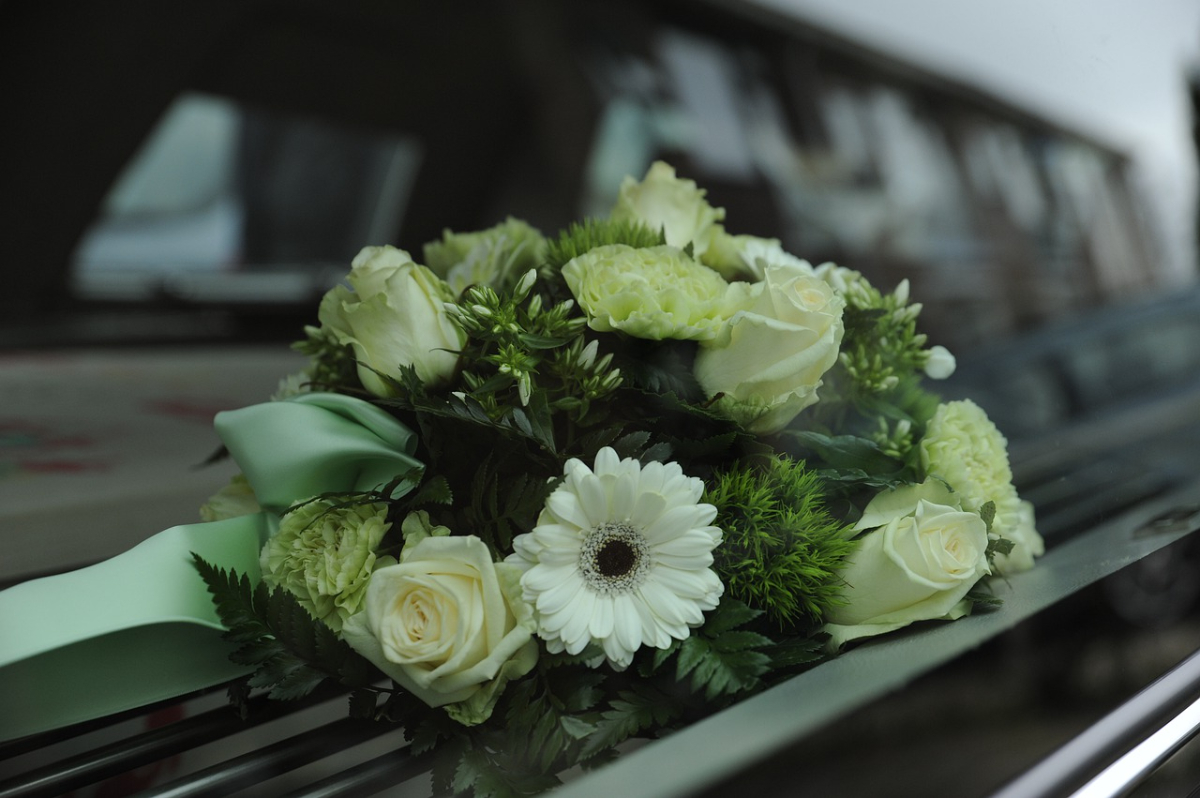Do you want to find out more about what a funeral director does? We look at the role of funeral directors and the variety of responsibilities they have.
What Does A Funeral Director Do?
Funeral directors typically manage their own funeral homes, providing funeral services or memorial services to clients throughout the local area of wherever they are based.
You can also find funeral directors that work as part of a larger organisation or group of funeral homes.
These larger organisations will also include other services provided to funerals, such as private cemeteries and florists.
You might hear several other names used synonymously with funeral directors, such as morticians or undertakers.
However, there are some key differences between these roles and their part in the funeral process.
Overall, these professionals are there to provide a considerate and comprehensive service, from preparing a loved one for burial or cremation to consolating their grieving friends and family members.

Responsibilities Of A Funeral Director
While the role of a funeral director is fairly well established in the name - they direct funerals - you would be surprised at the variety of responsibilities they have as part of their work.
For example, the death of a loved one is not always a clear cut thing, and unless they are severely ill, their death can come as a complete surprise to their loved ones. The funeral director's responsibility is to help lay the deceased to rest as respectfully and compassionately as possible.
Families will react in different ways to the death of their loved one, whether the death was a complete shock or an expected reality.
The funeral director must be there to accommodate their wishes; however they choose to handle their loss.
A funeral director must be there to help the family throughout the entire funeral process, 24-hours a day, seven days a week.

Good funeral directors must have the compassion, adaptability and empathy to put themselves at the service of the grieving family, providing all the services they require as they bury their loved one.
While their responsibilities will differ day-to-day, here we will go through a few of the more typical duties they will perform.
When a loved one passes, their family will very quickly come into contact with a funeral director. The key thing is for that funeral director to maintain regular contact with the relatives of the deceased to ensure they receive all of the help they need.
The funeral director's initial responsibilities are to reassure the deceased's family and help ease their burden in a very emotional stage of their lives.
The process of a funeral director arranging a service takes a lot of work, mostly on the part of the funeral director. During the meeting with the deceased's family where the arrangements are made, the funeral director will try to learn all about the deceased, such as their passions and interests during their life.
This information can help the director better understand the deceased's final wishes and tailor the funeral services to them.
Understanding the deceased and their family can help the funeral director make appropriate suggestions for the funeral arrangements that they believe the deceased would have liked, for example, if they would have preferred a particular type of music or flowers at their funeral.
Being a funeral director requires this level of personal understanding, alongside the compassion needed to gently guide families through the administrative side of the funeral, taking care of things such as record keeping, legal requirements and transportation.
Working alongside funeral arrangers, the director will take on the responsibility of arranging all the required elements of the funeral to bring everything together.
From the venue to cars to flower arrangements, a funeral director must be able to source all of the elements they need in a timely and reliable manner.
They may also be found preparing obituary notices or death notices in the local press after a person's death.
Naturally, one of the most important aspects of funeral directing is taking the deceased into their care. This can be arranged from any location, from the hospital to their home to a residential care home.
There is an established process for taking custody of the body, which is done with the utmost delicacy and respect.
This is probably the part of funeral directing that most people will notice. Alongside all the behind the scenes preparations, funeral directors will also attend the service itself and make sure that all of the elements of the funeral come together seamlessly.
There are more logistics than you might think when it comes to funerals, so having a professional there on the day to make sure everything runs smoothly is essential.
Once the funeral service is finished, the funeral director will return to the funeral home and help to clean the vehicles down. They will then liaise with the funeral arranger to discuss how they think the service went.
This discussion will help the funeral director when they call their clients to determine whether they feel that all of their wishes were met regarding the funeral of their loved one.
There are community services that funeral directors provide outside of their role in directing funerals.
They will often work alongside care home staff to train and educate them on what to do if one of their residents die and what the process is to have that person transferred to the care of a funeral director.
They will also arrange mock funeral services to help clergy or trainee funeral home staff prepare for the real thing.

What Are The Roles During A Funeral?
Other people besides the funeral director take active roles during funeral services. Naturally, the first point of contact for most families when arranging their loved one's funeral is the funeral director.
But again, these professionals are often mixed up with other funeral specialists, such as morticians and undertakers.
Here we will take you through some of these roles and their differences.
The funeral director's job description involves handling most of the funeral's overall organisational and administrative duties. They will source all the required services and materials, such as cars or floral tributes, and liaise with the appropriate professionals to create whatever funeral service you wish for your loved one.
They can also create online obituaries to inform those who knew the deceased while they were alive of the service while providing compassionate support for the deceased's family.
A funeral arranger will work closely with the funeral director to ensure that all the plans for the funeral service run smoothly.
They will discuss the funeral service with their clients, providing them with all the necessary information and professional advice so they can make the right decisions regarding their loved one's service.
This is the more arcane term used to denote a similar role to that of the funeral director.
In the past, the undertaker was simply the person who took care of the deceased's body once they had died, providing a coffin or casket for the burial and working alongside other professionals to arrange and oversee the ceremony.
Embalming someone who has died is a sanitary and cosmetic process that will temporarily preserve their body for a time prior to the funeral service.
This is most often done when the body is intended to be viewed, for example, at a wake.
Not every funeral director will be an embalmer, and not every embalmer will offer full funeral direction services.
Sometimes independent funeral directors will outsource the embalming of a client's loved one if they do not offer the service themselves.
This is yet another term often used to refer to someone performing similar tasks to a funeral director's role.
However, in the UK, a mortician is more often a person who works within a hospital, performing post-mortem examinations on those who have died and caring for their bodies, preparing them for burial.
Funeral attendants will help with the practical arrangements of the funeral on the day itself, ensuring that everything runs smoothly.
They may sometimes act as pallbearers to carry the coffin or drive the hearse to and from the service venue.
They will also direct the mourners to their seats, escorting them throughout the service.
Independent Funeral Director in Ormskirk
Are you looking for funeral services in Ormskirk, Aughton, Burscough, Lancashire? If you want more information about our independent funeral director to find out more.
